When many people think about events, if they aren’t thinking about concerts and sporting events, they likely think about event logistics – the person scurrying around, directing everyone to place tables and chairs in the right spots, getting catering sorted, and working with the audio/visual teams.
But, there is a whole other side to events – the digital tools and technology that make modern events work. Or what we refer to as event tech. Digital event tech is used across a wide range of event types:
- Virtual conferences and webinars
- Hybrid events (combining in-person and virtual elements)
- Trade shows and exhibitions
- Corporate meetings and town halls
- Educational seminars and workshops
When it comes to event tech careers, there are four general types of roles needed to make it happen. Depending upon the type of event and size of your team, you may need to wear one or more of these hats during the course of an event.
Technical project manager (TPM)
The technical project manger is the person who drives the project through to completion.
The TPM is generally responsible for:
- Managing project timelines
- Facilitating cross-team stakeholder meetings
- Working with stakeholders to get deliverables in on time
- Getting a clear understanding of business requirements (while in traditional software development there is often a business analyst to do that, events typically don’t have that luxury)
- Translating those to technical requirements
- Managing change requests
- Managing scope and hours
- Ensuring each of the phases of the event delivers on time
What makes a great TPM:
- People skills, people skills, people skills
- Ability to foster a collaborative project culture
- Ability to separate the urgent from the important to keep things moving forward
- Clear communication skills
- Can see both the big picture and the details
- Knows and when to push back on change requests to keep the event on track
The TPM is the face of the event tech team, is one of the most visible roles, and spends the most time in meetings.
Great TPMs are able to create a collaborative project culture
Solutions architect (SA) or developer
As soon as you move away from a single all-in-one platform, there is a high likelihood that at least some custom development is required. Integrating with an authentication provider (login) and sharing data between systems frequently require custom development.
This is where solutions architects and developers come in.
If you have existing software development experience, a transition into and event tech career is going to be a relatively easy one for you. If you do not have development experience but love playing with the tech, then a configuration and implementation role is going to be the right place to start.
What makes a great architect or developer:
-
- Significant software development experience – ideally across a few different technologies
- Experience doing software integrations
- Can understand an entire event tech stack to ensure it’s a smooth user experience
- Adapts easily to new technologies as they come out
- High level of attention to detail
- Experience with CSS, HTML, and Javascript for branding and styling
Configuration & implementation
Of all of the roles listed here, this is the broadest of all of them. That is because what is needed here is wholly dependent upon the client needs and the event tech stack being used.
Many of the current event tech platforms deliver a ton out-of-the-box and you can deliver a great event with many of these all-in-one solutions with only basic configuration (plus good testing).
There is a huge need out there for individuals who knows these different platforms, know its subtle quirks (they all have them!), and can get in and quickly configure it to meet their clients needs.
What makes a great configuration specialist:
- Ability to take a business requirement and turn it into a technical requirement
- Ability to look at a problem and propose possible solutions
- Good attention to detail
- Likes to solve puzzles
- A willingness to try and test
- Previous experience with the platforms is always a bonus, but not necessarily required

Quality assurance (QA)
QA, while a fancy term, is someone who tests to make sure that things are working as expected. The job of a QA person is to provide assurance that the product meets the quality expectations.
As you can likely already guess, this is a role that requires a high level of attention to detail. The best QA professionals that I work with take a holistic look at the systems and ensure that:
- Things actually work — does clicking the button do what it’s supposed to, does the right data display, do things look right on all devices, etc.
- Business requirements are met — if the end goal is an attendee registered at a certain price with a certain type of badge, is that what actually happens.
- There are no gaps in processes or requirements – the best of the best do this. It’s the situation where the system was built as designed, but in doing so it led to “unintended consequences” that are only discovered now that it’s built. Someone who can recognize this when it happens will never lack for work.
Who makes a great QA person:
- High attention to detail
- Extremely well-organized
- A mindset of curiosity
- Not afraid to ask questions
- Doesn’t mind a certain amount of repetition
You may have noticed that a lot of the skills needed for QA are similar to configuration and implementation. On many events, these are even the same person.
However, the nice thing about a QA roles is that if often has more flexibility than others when it comes to when the work gets done. It can typically be done outside of business hours, which is ideal for some people.
Want to learn more about event tech careers?
This article is part of a five-part series about what it’s like to work in event tech and how to make the leap:
- Is Event Tech Right for You? A Deep Dive into Careers in Digital Events
- Event Tech Jobs: How to Choose the Best Role for Your Skills and Goals
- Beyond the Code: How Non-Techies Can Excel in Event Tech
- Transitioning to Event Tech: How to Reframe Your Skills and Land the Job
I’ve also created this handy action plan to help you determine your next steps in evaluating if event technology is for you. It’s free, just sign up below.





